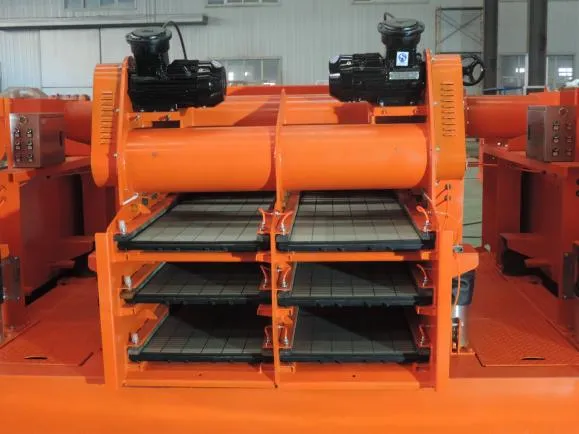- Industrial zone, South of Anping Town, Hengshui, Hebei, China.
- sales@hfpetromesh.com
- +86-18931809706
 Afrikaans
Afrikaans  Albanian
Albanian  Amharic
Amharic  Arabic
Arabic  Armenian
Armenian  Azerbaijani
Azerbaijani  Basque
Basque  Belarusian
Belarusian  Bengali
Bengali  Bosnian
Bosnian  Bulgarian
Bulgarian  Catalan
Catalan  Cebuano
Cebuano  Corsican
Corsican  Croatian
Croatian  Czech
Czech  Danish
Danish  Dutch
Dutch  English
English  Esperanto
Esperanto  Estonian
Estonian  Finnish
Finnish  French
French  Frisian
Frisian  Galician
Galician  Georgian
Georgian  German
German  Greek
Greek  Gujarati
Gujarati  Haitian Creole
Haitian Creole  hausa
hausa  hawaiian
hawaiian  Hebrew
Hebrew  Hindi
Hindi  Miao
Miao  Hungarian
Hungarian  Icelandic
Icelandic  igbo
igbo  Indonesian
Indonesian  irish
irish  Italian
Italian  Japanese
Japanese  Javanese
Javanese  Kannada
Kannada  kazakh
kazakh  Khmer
Khmer  Rwandese
Rwandese  Korean
Korean  Kurdish
Kurdish  Kyrgyz
Kyrgyz  Lao
Lao  Latin
Latin  Latvian
Latvian  Lithuanian
Lithuanian  Luxembourgish
Luxembourgish  Macedonian
Macedonian  Malgashi
Malgashi  Malay
Malay  Malayalam
Malayalam  Maltese
Maltese  Maori
Maori  Marathi
Marathi  Mongolian
Mongolian  Myanmar
Myanmar  Nepali
Nepali  Norwegian
Norwegian  Norwegian
Norwegian  Occitan
Occitan  Pashto
Pashto  Persian
Persian  Polish
Polish  Portuguese
Portuguese  Punjabi
Punjabi  Romanian
Romanian  Russian
Russian  Samoan
Samoan  Scottish Gaelic
Scottish Gaelic  Serbian
Serbian  Sesotho
Sesotho  Shona
Shona  Sindhi
Sindhi  Sinhala
Sinhala  Slovak
Slovak  Slovenian
Slovenian  Somali
Somali  Spanish
Spanish  Sundanese
Sundanese  Swahili
Swahili  Swedish
Swedish  Tagalog
Tagalog  Tajik
Tajik  Tamil
Tamil  Tatar
Tatar  Telugu
Telugu  Thai
Thai  Turkish
Turkish  Turkmen
Turkmen  Ukrainian
Ukrainian  Urdu
Urdu  Uighur
Uighur  Uzbek
Uzbek  Vietnamese
Vietnamese  Welsh
Welsh  Bantu
Bantu  Yiddish
Yiddish  Yoruba
Yoruba  Zulu
Zulu
- Afrikaans
- Albanian
- Amharic
- Arabic
- Armenian
- Azerbaijani
- Basque
- Belarusian
- Bengali
- Bosnian
- Bulgarian
- Catalan
- Cebuano
- Corsican
- Croatian
- Czech
- Danish
- Dutch
- English
- Esperanto
- Estonian
- Finnish
- French
- Frisian
- Galician
- Georgian
- German
- Greek
- Gujarati
- Haitian Creole
- hausa
- hawaiian
- Hebrew
- Hindi
- Miao
- Hungarian
- Icelandic
- igbo
- Indonesian
- irish
- Italian
- Japanese
- Javanese
- Kannada
- kazakh
- Khmer
- Rwandese
- Korean
- Kurdish
- Kyrgyz
- Lao
- Latin
- Latvian
- Lithuanian
- Luxembourgish
- Macedonian
- Malgashi
- Malay
- Malayalam
- Maltese
- Maori
- Marathi
- Mongolian
- Myanmar
- Nepali
- Norwegian
- Norwegian
- Occitan
- Pashto
- Persian
- Polish
- Portuguese
- Punjabi
- Romanian
- Russian
- Samoan
- Scottish Gaelic
- Serbian
- Sesotho
- Shona
- Sindhi
- Sinhala
- Slovak
- Slovenian
- Somali
- Spanish
- Sundanese
- Swahili
- Swedish
- Tagalog
- Tajik
- Tamil
- Tatar
- Telugu
- Thai
- Turkish
- Turkmen
- Ukrainian
- Urdu
- Uighur
- Uzbek
- Vietnamese
- Welsh
- Bantu
- Yiddish
- Yoruba
- Zulu
helipads perimeter safety netting
The Importance of Helipads Perimeter Safety Netting
Helipads are essential infrastructures that facilitate the safe landing and takeoff of helicopters. However, as with any form of aviation, there are inherent risks involved, particularly concerning the safety of the surrounding area. One effective measure to mitigate these risks is the implementation of perimeter safety netting around helipads. This article discusses the significance of such netting and its role in enhancing safety standards.
The Importance of Helipads Perimeter Safety Netting
In addition to preventing access, safety netting also acts as a containment system. In the event of a helicopter mishap, the netting can help to catch and contain debris, thereby minimizing the risk of injury to bystanders. This is crucial in environments where population density is high, as the consequences of an accident can extend far beyond the helipad itself. Safety netting can serve as a first line of defense, protecting both people and property from potential hazards.
helipads perimeter safety netting

Moreover, perimeter safety netting can be designed to comply with regulatory standards, ensuring that helipads meet the safety expectations set forth by aviation authorities. This adherence not only enhances the reputation of the helipad as a safe operating base but also fosters greater trust among the public and stakeholders. By prioritizing safety through the use of netting, helipad operators demonstrate their commitment to maintaining high operational standards.
Another advantage of safety netting is its versatility. It can be tailored to meet specific environmental conditions and operational needs. For example, in marine environments, netting can be treated to withstand corrosion from saltwater, while in more urbanized areas, netting can be designed to minimize visual obstruction. This adaptability makes it an ideal solution for various helipad applications.
In conclusion, the importance of perimeter safety netting around helipads cannot be overstated. It plays a crucial role in enhancing safety by controlling access, containing debris, and ensuring compliance with safety regulations. As the aviation industry continues to grow, prioritizing such safety measures will be essential in protecting both operators and the communities they serve. Integrating effective safety netting solutions is, therefore, not just a regulatory necessity but a moral imperative.
-
Why Our Shaker Screen for Sale Stands Out in Every ApplicationNewsAug.08,2025
-
Unmatched Efficiency with Premium Shale Shaker Screen TechnologyNewsAug.08,2025
-
Reliable, Durable, and Cost-Effective: Press Locked Steel Grating SolutionsNewsAug.08,2025
-
Precision Strength with Welded Steel Bar GratingNewsAug.08,2025
-
Perimeter Safety Netting: The High-Strength Shield for Elevated Safety SolutionsNewsAug.08,2025
-
Maximize Performance with Steel Walkway GratingNewsAug.08,2025